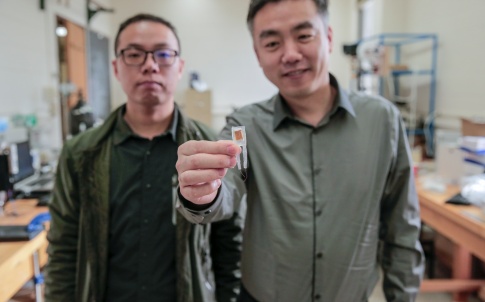
Developed by engineers at the University of Wisconsin-Madison the tiny device, which measures less than 1 centimetre across, generates gentle electric pulses from the stomach’s natural churning motions and delivers them to the vagus nerve, which links the brain and the stomach. This dupes the brain into thinking that the stomach is full after only a few nibbles of food.
“The pulses correlate with the stomach’s motions, enhancing a natural response to help control food intake,” said Xudong Wang, a UW–Madison professor of materials science and engineering.
Said to be implantable via a minimally invasive procedure, the system has already been trialled on rats, which lost almost 40 percent of their body weight. Results of the study were published in the journal Nature Communications.
Unlike gastric bypass surgery, which permanently alters the capacity of the stomach, the effects of the new devices also are reversible. When Wang and his collaborators removed the devices after 12 weeks, the study’s rats resumed their normal eating patterns and regained weight.
Wang is a world expert in wearable and implantable capacitive electricity-generating devices, having previously created implantable nanogenerators that harvest energy from people’s beating hearts and breathing, a motion-powered bandage for wound healing, and other such devices.
Wang said that the device has several advantages over an existing unit known as “Maestro” that also works by stimulating the vagus nerve but which requires a complicated control unit and bulky batteries which frequently must be recharged.
Dr. Luke Funk, a surgery professor in UW–Madison’s Division of Minimally Invasive, Foregut and Bariatric Surgery that ongoing maintenance can be a big barrier to use. “One potential advantage of the new device over existing vagus nerve stimulators is that it does not require external battery charging, which is a significant advantage when you consider the inconvenience that patients experience when having to charge a battery multiple times a week for an hour or so,” he said.










WildFusion helps robot traverse difficult terrain
<a...